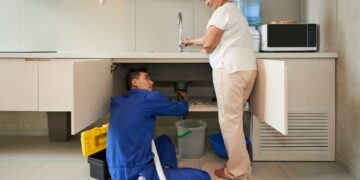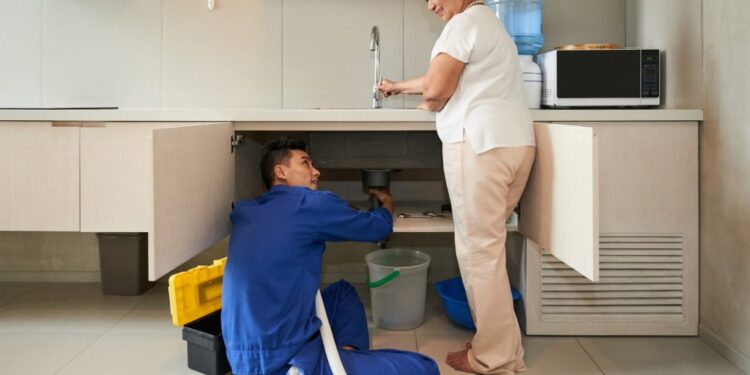Emergencies can strike unexpectedly, especially when it comes to plumbing issues. Whether it’s a burst pipe, a clogged drain, or a malfunctioning water heater, having access to a reliable emergency plumber in Walsall can make all the difference. However, prevention is always better than cure. In this guide, we will explore some essential tips to help you prevent plumbing disasters and minimize the need for emergency interventions.
1. Regular Maintenance
Regular maintenance is the cornerstone of a healthy plumbing system. Just like you service your car to prevent breakdowns, your plumbing requires periodic attention to keep everything running smoothly. Schedule annual inspections with a qualified emergency plumber to check for leaks, corrosion, and other potential problems. Addressing issues early can save you from major headaches down the line.
2. Monitor Water Pressure
Monitoring water pressure is crucial for preventing plumbing disasters. High pressure can strain pipes and fixtures, leading to leaks and bursts. Use a pressure gauge to check levels regularly, aiming for 40-60 psi. If the pressure is too high, install a regulator to protect your plumbing. Keeping pressure within the optimal range helps maintain system integrity and reduces the risk of costly emergencies.
3. Be Mindful of What Goes Down the Drain
To prevent clogged drains, be cautious about what you pour or flush. Avoid disposing of grease, coffee grounds, or hair down sinks and toilets, as they can accumulate and cause blockages. Utilize drain strainers in the kitchen sink to catch food particles and invest in a shower hair catcher. By being mindful of what goes down the drain, you can minimize the risk of plumbing emergencies and maintain a smoothly functioning system.
4. Insulate Exposed Pipes
In colder climates like Walsall, frozen pipes are a common problem during the winter months. When water freezes inside a pipe, it expands and can cause it to burst, leading to extensive water damage. To prevent this, insulate any exposed pipes, especially those in unheated areas like basements, attics, and crawl spaces. Foam pipe insulation is inexpensive and easy to install.
5. Act Quickly on Minor Leaks
Act swiftly upon spotting minor leaks to prevent major issues. Whether it’s a dripping faucet or a small leak under the sink, immediate action is crucial. Ignoring these seemingly insignificant leaks can lead to extensive water damage, mold growth, and structural issues. Repair the leak promptly or seek professional assistance to assess the situation. Don’t underestimate the potential consequences of minor leaks; addressing them promptly can save you from costly repairs in the future.
6. Know the Location of Shut-Off Valves
In case of a plumbing emergency, knowing how to quickly shut off the water supply can prevent significant damage to your home. Familiarize yourself with the location of the main shut-off valve and individual shut-off valves for sinks, toilets, and appliances. Labeling these valves can be helpful in times of crisis, ensuring that anyone in your household can respond effectively to a plumbing emergency.
7. Invest in Quality Fixtures
Investing in high-quality fixtures for your plumbing system is essential. Opting for reputable brands ensures durability and reduces the likelihood of leaks and malfunctions. While the initial cost may be higher, the long-term benefits outweigh the investment. Quality fixtures require fewer repairs and maintenance, saving you money and hassle in the long run. Choose fixtures that are built to last, as they contribute to the overall health and efficiency of your plumbing system.
8. Practice Water Conservation
Conserving water not only helps the environment but also reduces the strain on your plumbing system. Install low-flow fixtures in your bathrooms and kitchen to minimize water usage. Encourage your family members to take shorter showers, turn off the tap while brushing their teeth, and fix any leaks promptly. By reducing water waste, you can prolong the lifespan of your plumbing and save money on your utility bills.
Conclusion
Preventing plumbing disasters requires a proactive approach and a commitment to regular maintenance. By following the tips outlined in this guide, you can safeguard your home against costly emergencies and enjoy peace of mind knowing that your plumbing is in good condition. Remember, a little prevention goes a long way in avoiding the need for an Emergency Plumber Birmingham.




























































